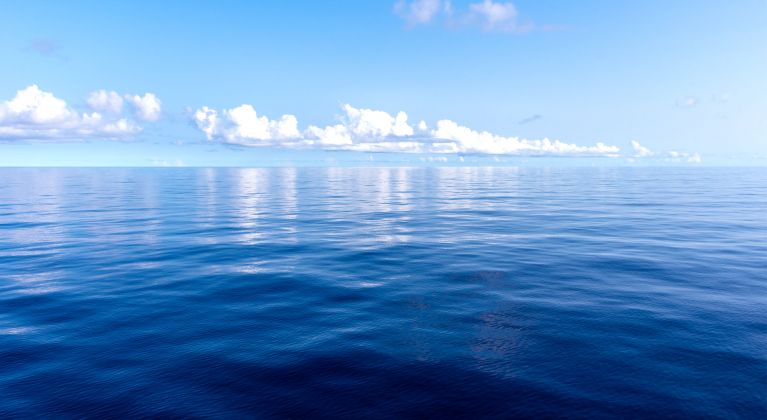
Turkey: Revised pollution fines 2024
- Home
- Latest updates
- News
- Turkey: Revised pollution fines 2024
Members are advised that fines for causing pollution in Turkish waters have risen substantially. This is in accordance with the declaration by the Ministry of Environment and Urbanisation in Turkey, which was published in the Official Gazette dated 28 December 2023 and imposed under the Turkish Environmental Code dated 1983, numbered 2872. With effect from 1 January 2024, fines are increased by 58.4%, and the updated amounts are listed below.
Category 1 – pollution from tankers such as petroleum products.
- Up to 1000 (inclusive) Gross Tons: 3,184.81 Turkish lira per ton.
- Between 1000 and 5000 (inclusive) Gross Tons: plus 796.23 Turkish lira per ton.
- Over 5000 Gross Tons: plus 79.59 Turkish lira per ton.
Category 2 – pollution by dirty ballast by tankers.
- Up to 1000 (inclusive) Gross Tons: 580.25 Turkish lira per ton.
- Between 1000 and 5000 (inclusive) Gross Tons: plus 115.76 Turkish lira per ton.
- Over 5000 Gross Tons: plus 18.37 Turkish lira per ton.
Category 3 – pollution from ships/vessels and other sea vehicles such as petroleum products, petroleum derivatives and other oil waste (bilge, oil mud, freight mud, fuel oil, oil waste, dirty ballast).
- Up to 1000 (inclusive) Gross Tons: 1,592.40 Turkish lira per ton.
- Between 1000 and 5000 (inclusive) Gross Tons: plus 318.49 Turkish lira per ton.
- Over 5000 Gross Tons: plus 79.59 Turkish lira per ton.
Category 4 – garbage and sewage (domestic waste water/detergent water/foam/scrubber wash water or similar wash water and solid wastes discharged by ships/vessels and other sea vehicles.
- Up to 18 (inclusive) Gross Tons: 17,661.00 Turkish lira.
- Between 18-50 (inclusive) Gross Tons: 35,325.00 Turkish lira.
- Between 50-100 (inclusive) Gross Tons: 70,650.00 Turkish lira.
- Between 100-150 (inclusive) Gross Tons: 105,976.00 Turkish lira.
- Up to 1000 (inclusive) Gross Tons: 796.23 Turkish lira per ton.
- Between 1000 and 5000 (inclusive) Gross Tons: an additional 159.25 Turkish lira per ton.
- Over 5000 Gross Tons: an additional 18.37 Turkish lira per ton.
Bunker sulphur content related fines – bunkers exceeding the maximum sulphur content of 0.5% (0.1% when navigating in the SOx Emission Control Areas) on vessels not using approved pollution reduction methods.
- Up to 1000 (inclusive) Gross Tons: 706.51 Turkish lira per ton.
- Between 1000 and 5000 (inclusive) Gross Tons: an additional 88.31 Turkish lira per ton.
- Over 5000 Gross Tons: an additional 17.67 Turkish lira per ton.
Guidance
The level of each fine is calculated according to the gross tonnage of the liable vessel and is irrespective of the amount of pollution. The amounts stated above apply when the fine is issued against ‘real persons’ (e.g., the Master), but this is only when the authorities are unable to identify the owners of the vessel or the vessel is indeed owned by a private individual. In most cases, the level of the fine will in fact be trebled as the fine is issued directly against the ‘institution, organisation or business’ that owns the vessel.
Fines paid within 30 days of being issued are reduced by 25%. The fines may also be appealed during this period, though the prospects of success in appeal proceedings are low.
Points to note
- Fine amounts will be doubled if another offence is committed by the same vessel and trebled for further offences committed thereafter within three years of the first offence.
- If a vessel disposes of any hazardous waste or substances, fine amounts will be 10 times those applicable under Category 1 - pollution from tankers such as petroleum products.
- If a vessel clears the pollution by its own means, the fine will be reduced to 1/3 of the applicable amount.
Please refer to the Supplemental update to pollution fines 2022 for the list of ‘Special Protection Areas’ where fines for an offence are doubled.
Practical tips for avoiding fines
When a vessel is in Turkish territorial waters, the crew should follow the on-board procedures carefully, especially with regards to washing, checking of valves, and being alert to any problems when undertaking de-ballasting operations. As always, it is crucial to ensure the Oil, Ballast Water and Garbage Record Books are up to date and in order. It is also recommended to video any bunkering, oil supply, sludge/bilge removal operations (at least during the connection and disconnection of the apparatus) to rebut any allegations that may be made against the vessel.
If Members regularly call at Turkish ports, it is recommended to make necessary modifications to allocate convenient tanks to collect cargo hold wash water, sewage, galley and grey water.
Members should take prompt action to notify the authorities and the Club if a pollution incident occurs.
What to do when pollution occurs
The key to minimising Members’ exposure is to act promptly by:
1. Informing the Club immediately;
2. Collecting and storing any relevant evidence;
3. Notifying the relevant authorities and cooperating with their investigations;
4. Taking immediate steps to stop the source of pollution and to clean the pollutant; and
5. Appointing a clean-up contractor.
Promptness and cooperation with the authorities are of paramount importance because if a shipowner arranges and assists with the clean-up operation, they may only be liable for one third of the total fine. Failure to do so can also result in elevated fines being imposed.
For further guidance, please contact the Club’s local correspondents or the Claims Department.

